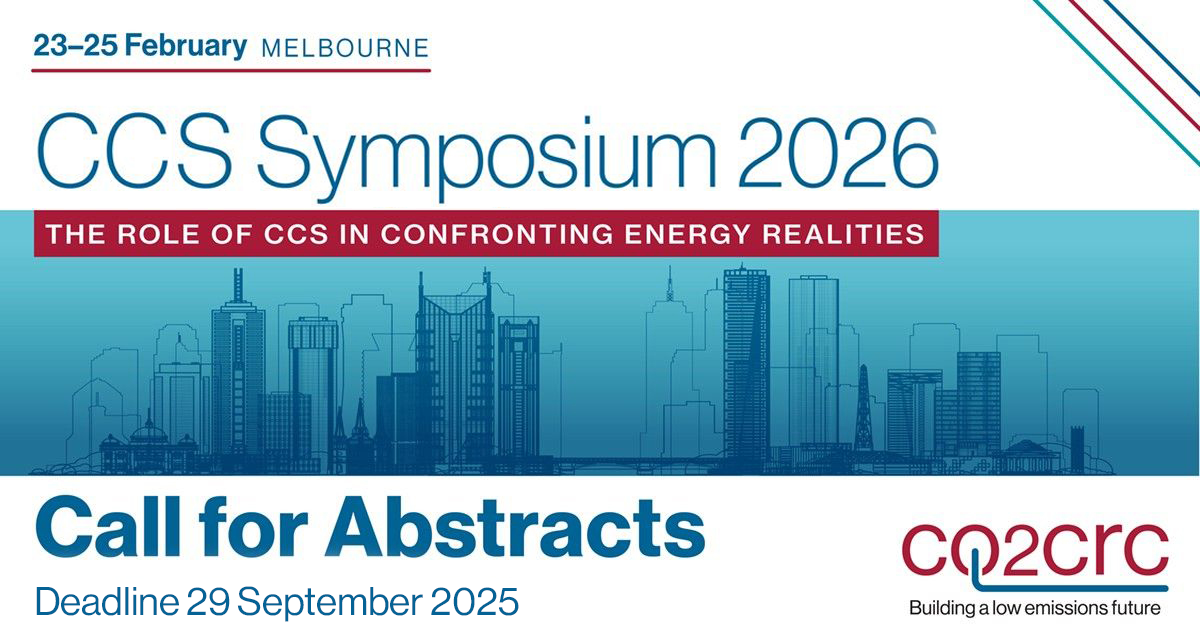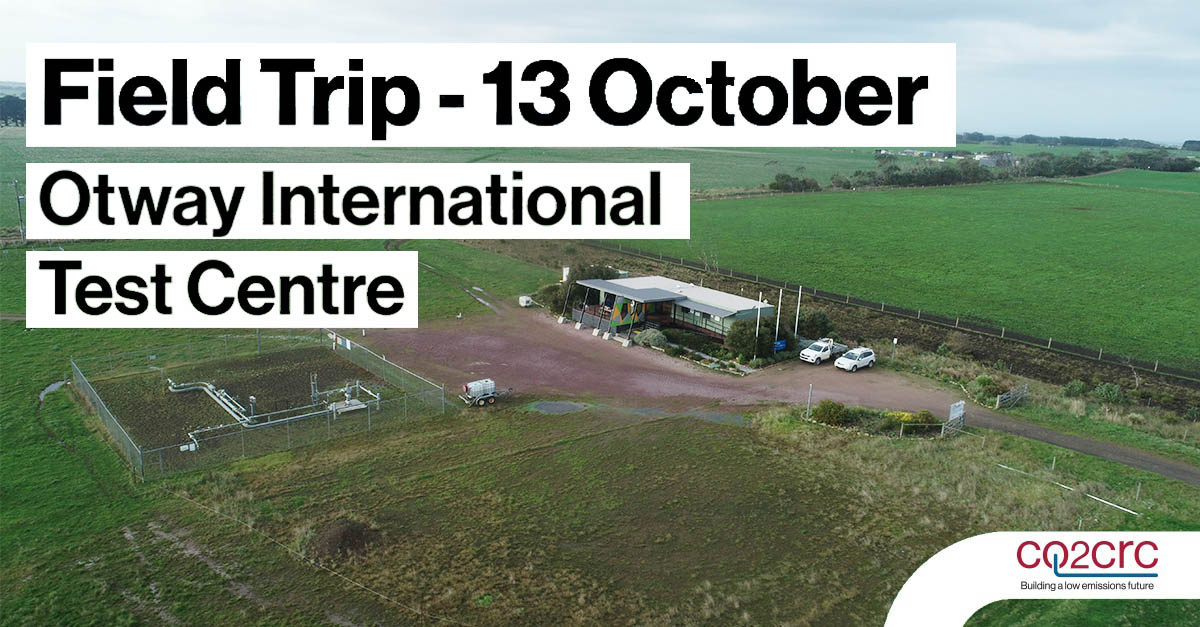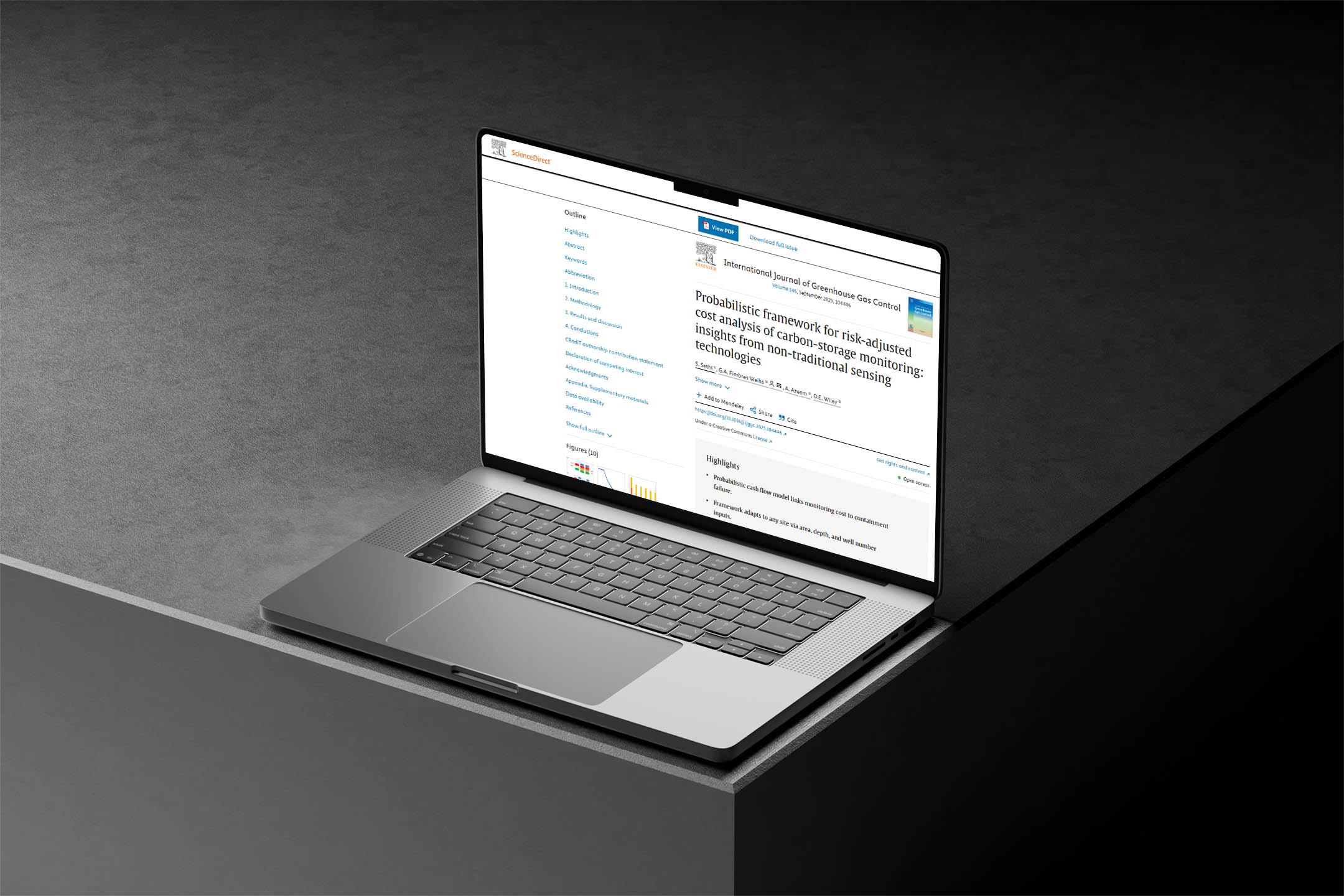
A new chapter for CCS: partnering for Australia’s Future Program
 Dear Colleagues and Partners,
Dear Colleagues and Partners,
The challenge of achieving net zero emissions by 2050 is no longer an abstract ambition. It is an urgent task, shaped by energy realities that cannot be ignored. Fossil fuels still provide over 90 per cent of Australia’s energy needs, and despite significant progress, national emissions remain at around 436 million tonnes of CO₂-e in 2025. For our economy, for our energy security, and for our climate commitments, carbon capture and storage (CCS) is indispensable. Without it, the pathways to net zero are simply not feasible.
At CO2CRC, we believe that CCS must be a progressively increasing component of our energy future, both in Australia and across the Asia-Pacific. We also believe that the moment to further invest in innovation is now. That is why I am proud to announce the launch of our Future Research Program for 2026–2035 and to share that CO2CRC has begun engaging partners, both in Australia and internationally, to shape and deliver our national initiative.
A decade-long research program of global significance
Our Future Program is a $120 million+ collaborative research effort with all major research organisations in Australia. It will build on the legacy of the Otway International Test Centre, the world’s most advanced CCS research facility, and directly address the challenges of scaling CCS to multi-million-tonne projects.
The program is structured around eight highly innovative themes to deliver lower project costs, de-risk industry investment, and strengthen international partnerships.
A call to partners
CO2CRC has now begun the process of engaging with partners across industry, government, research, and internationally to co-design the Future Program. Early involvement is essential to our success. It will ensure that the research agenda aligns with the national priorities and operational realities faced by project developers and policymakers, while also unlocking shared national and international benefits.
Australia has the geology, the industries, and the expertise to lead in CCS. But we also face challenges: other regions, from Asia to North America, are accelerating investment with strong government support. If we want to remain competitive and protect the future of our resource industries, which are vital to both our domestic economy and our Asia-Pacific export partners, we need to act decisively. Partnerships will be our catalyst for progress.
By joining this program, partners will be investing not just in research, but in a stronger, more resilient low-emissions future for Australia and the wider region.
Why this matters now
CCS is essential to meeting Australia’s climate targets. The Safeguard Mechanism requires new gas fields with reservoir CO₂ emissions to deploy CCS. The Future Gas Strategy makes clear that LNG will continue to play a critical role in energy security, but that its emissions intensity must fall. And our international obligations under the London Protocol have opened the door for offshore sequestration of imported CO₂.
At the same time, the need for credible, science-based solutions has never been greater. Public confidence, regulatory certainty, and international competitiveness all depend on a robust foundation of evidence and capability. That is exactly what our Future Program is designed to deliver.
Looking ahead
CO2CRC’s mission has always been to combine rigorous science with real-world impact. The Otway International Test Centre has already delivered over $200 million of world-class infrastructure and knowledge, recognised across the globe. The Future Program takes this to the next level by re-positioning Australia as a leader in the evolution of CCS at precisely the time when the world needs it most.
As we begin engaging partners, I want to extend an open invitation: join us in shaping this next chapter for CCS in Australia and beyond. Together, we can ensure that our industries remain viable, our energy supply remains secure, and our climate goals remain achievable.
The need is urgent, the opportunity is clear, and CO2CRC is ready. Request our term sheet. We look forward to working with you.
Dr Matthias Raab
CEO
Call for abstracts - CCS Symposium 2026
CO2CRC and the 2026 Symposium Technical Program Committee invite you to submit an abstract for consideration to present at the CO2CRC CCS Symposium 2026.
This leading Australian CCS event’s theme is ‘The role of CCS in confronting energy realities’, and it will bring together international experts, senior government officials, industry leaders, and researchers to discuss the opportunities and real-world challenges in the energy transition and in enabling large scale decarbonisation.
This year’s symposium will feature a mix of plenary talks, technical sessions, and panel discussions, with a focus on practical deployment, field data, and breakthrough innovations. Presenters are encouraged to share lessons from demonstration projects, applied research, and enabling technologies.
Presenting at the CO2CRC Symposium is a unique opportunity to share your work with a targeted audience of CCS decision-makers, technical experts, and policymakers. This year’s symposium will also feature a flash talk poster session where presenters deliver a short, impactful introduction to their poster before the poster viewing. Sessions are designed to be dynamic, with interactive Q&A and panel discussions to maximise engagement and knowledge exchange.
We strongly encourage submissions from early career professionals, students, and underrepresented groups in the CCS community. Contributions from diverse professional backgrounds, spanning industry, government, and academia, are welcomed.
The John Tyndall Award
The John Tyndall Award is CO2CRC’s highest honour, presented biennially at the Symposium to recognise the most outstanding science in carbon capture and storage (CCS), and carries a $1,500 cash prize.
Named after 19th-century Irish scientist John Tyndall, whose groundbreaking experiments revealed the role of carbon dioxide and water vapour as greenhouse gases, the award celebrates research that has advanced understanding, driven innovation, and delivered meaningful impact for global CCS deployment.
The technical topics are:
- Subsurface Characterisation & Modelling
- Injection & Reservoir Management
- Monitoring & Verification
- AI and Digital Innovation in CCS
- Risk, Regulation & Infrastructure
- Applications & Emerging Technologies
Submissions open: The call for abstracts has started for the CCS Symposium 2026.
CO2CRC launches AI-Powered knowledge system: a first for carbon capture and storage
CO2CRC have launched its own CCUS chat-bot – the Intelligent Knowledge Management System (IKMS) – an advanced AI-powered platform that places the organisation at the forefront of digital innovation in carbon capture and storage (CCS).
The tool, built on large language model (LLM) technology similar to ChatGPT, Claude, Copilot, and Grok, is believed to be the first of its kind dedicated to the CCS sector.
The IKMS will offer CO2CRC members and research collaborators a powerful, intuitive way to query over 20 years of technical research and publications. Unlike traditional library systems or database portals, this system understands natural language queries and delivers tailored, document-sourced responses, streamlining the path from question to evidence-backed insight.
“We didn’t just want a better search engine (for our research), we wanted a smarter knowledge system,” said Paul Barraclough, CO2CRC’s Business Development Director.
“Our IKMS will understand CCS-specific questions and draws on over 6,000 documents to give precise, source-linked answers. It’s like having an expert research assistant at your fingertips.”
The journey toward the IKMS began with feedback that the previous library database, Publication Tracking System (PTS), had grown less intuitive over time and, in some cases, was affected by firewall settings at member organisations. Phase one of the improvement project saw the launch of a web-based Membership Portal, offering curated and accessible content for members. While the planned phase two, the release of IKMS, marks a more transformative shift.
Powered by a locally developed AI application, the IKMS is deeply integrated with CO2CRC’s database of research publications, desktop studies, conference papers and journal articles – and so much more. Every document has been ported, indexed, and used to train the system: from the initial stages of the OITC storage site, through to the most recent research outcomes delivered in our Stage 4 project, as well as our industry leading research in CO2 Capture and Utilisation and Underground Hydrogen Storage.
“The real innovation is the way the system identifies and surfaces relevance,” said Paul Barraclough. “The IKMS doesn’t just answer ‘what are the key risks in CCS?’ – it will show you exactly which report contains the most authoritative answer and let you download that document directly,” he said.
In addition to improving discoverability, the IKMS will give members access to their personal query history and allows iterative, context-aware research—further aligning with how scientists and engineers work.
The system went live on August 18, 2025, and is now accessible to all members Tutorials and support materials are being rolled out in stages to ensure members can maximise the system’s potential. Please check the following page for tutorials relating to the IKMS.
“This is about making knowledge frictionless,” Paul Barraclough added. “We’ve invested in this platform so that the incredible work done across our research programs is not only preserved, but readily accessible and usable—especially as the pace of CCS deployment accelerates globally.”
As carbon capture and storage moves from pilot to commercial scale, CO2CRC’s digital transformation signals a clear commitment: to equip its members with the tools to execute.
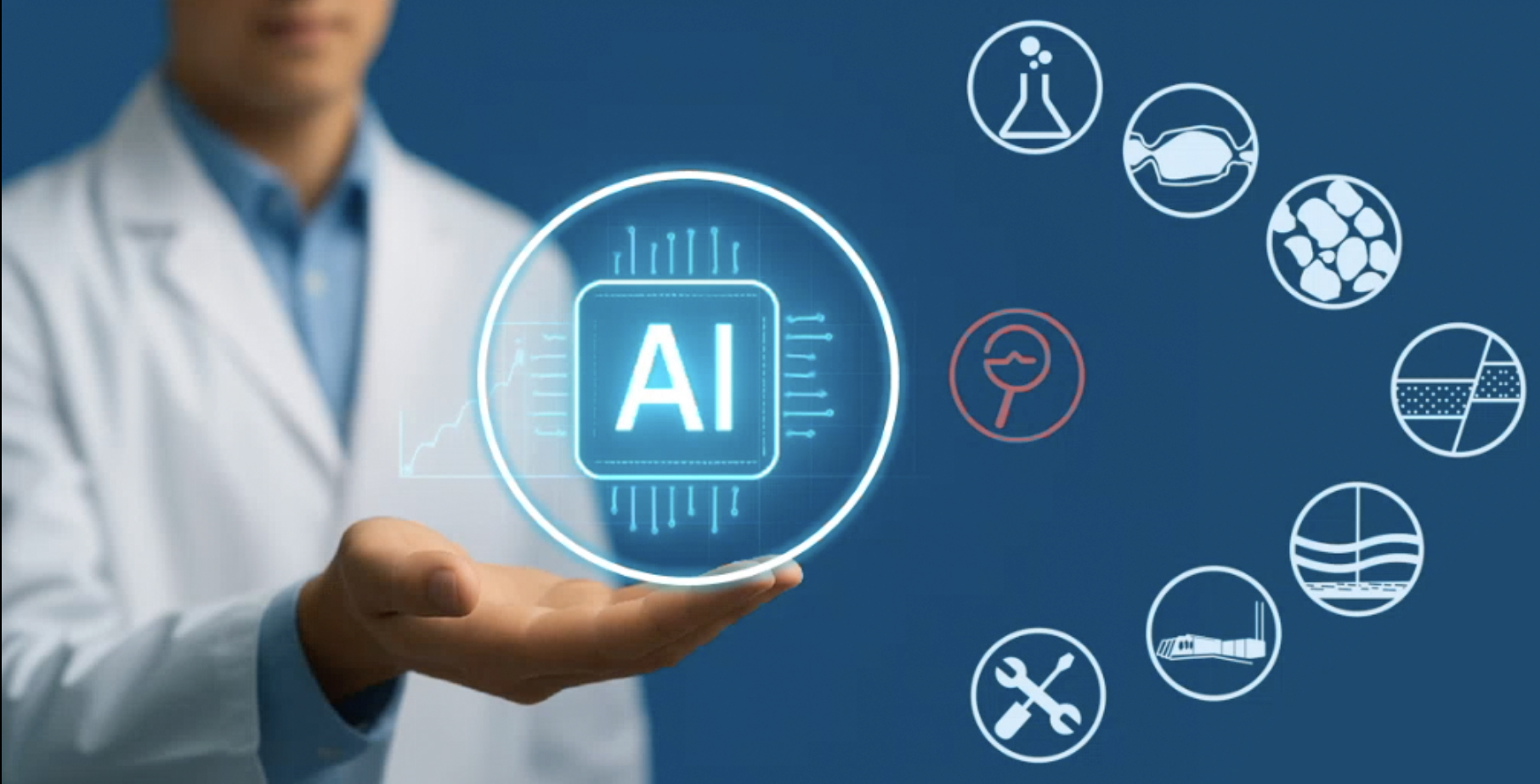
Powering smarter CCS decisions: CO2CRC’s new AI-driven Intelligent Knowledge Management System (IKMS) brings cutting-edge technology to the forefront of carbon capture and storage.
CO2CRC presents key research at Asia-Pacific CCUS conference
Genna Petho, Reservoir Engineer, and Dr Hadi Nourollah, Subsurface Lead, CO2CRC, represented the organisation at the Society of Petroleum Engineers (SPE) International Asia Pacific Carbon Capture, Utilisation and Storage (CCUS) Conference 2025, highlighting CO2CRC’s leadership in storage innovation and risk management.
Genna and Hadi attended the regional conference in Kuala Lumpur from 26–27 August, which saw international experts exchange the latest developments in carbon capture and storage.
Genna presented the latest findings from CO2CRC’s Shallow Fault Project, which is delivering vital insights into CO₂ behaviour in faulted formations—an issue central to understanding containment risk and enhancing the long-term safety of carbon storage. Her talk, “CO₂ Injection in Faulted Formations: Insights from the Shallow Fault Project”, was featured in Technical Session 12: Safeguarding CCS: Containment Risks Management.
Genna also served as a member of the conference’s Technical Committee, contributing to the design of sessions that explored key CCS themes including CO₂ storage optimisation, measurement, monitoring and verification (MMV), operational challenges, and regulatory frameworks.
In addition to presenting, she also chaired Technical Session 5: Injection Strategies and Risk Management, alongside ExxonMobil’s Fahim Azahan.
This engagement reinforces CO2CRC’s position at the forefront of applied carbon storage research and its commitment to advancing safe, commercial-scale CCS deployment in the Asia-Pacific region and beyond.
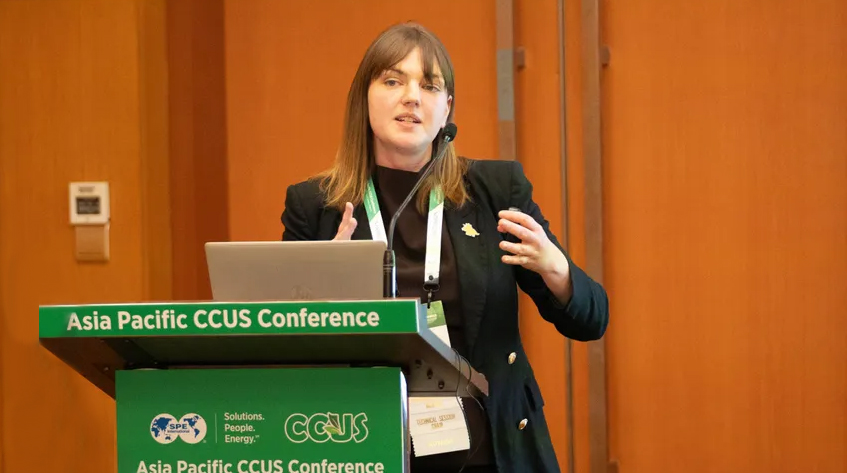
Reshaping the low-carbon future: Genna Petho, CO2CRC Reservoir Engineer, speaks at the Asia Pacific CCUS Conference in Kuala Lumpur.
CCS test centre field trip - 13 October
The week following the 2nd Carbon Capture Australian Conference, we’re offering tours of our world-renowned Otway International Test Centre (OITC).
Come and join our Field Trip on 13 October, visit the OITC, and learn about our CO2 injection experiments and research over the past 20 years.
Enjoy a comfortable return journey from Melbourne’s CBD to the OITC, located in Nirranda South, south-west Victoria. Your ticket includes travel, a guided site tour, Q&A, and lunch. This day visit will return participants to Melbourne that evening.
Date: October 13, 2025
Time: 7.30 am – 5.30 pm
Lunch: Provided
Ticket: $400 inc. GST
Bus pickup address: 289 Wellington Parade South, Melbourne (CO2CRC Limited head office).
There are a limited number of seats on the bus, so book now!
At the frontier of carbon innovation: The Knowledge Hub at the OITC, which will be hosting visitors keen to learn more about CCS on the 13 October, 2025.
CO2CRC research helps uncover the true cost of carbon storage
A newly published paper in the International Journal of Greenhouse Gas Control is reshaping how we think about the cost of storing carbon dioxide underground.
The study, titled ‘Probabilistic framework for risk-adjusted cost analysis of carbon-storage monitoring insights from non-traditional sensing technologies’ draws on real-world data from CO2CRC’s OITC.
The study presents a new model that includes not only the direct costs of carbon capture and storage (CCS), but also the economic risks of things going wrong.
For policymakers, researchers and project developers, the findings mark an important step toward understanding the full financial picture of CCS and how smarter monitoring can help manage risk.
Moving beyond CAPEX and OPEX
Until now, most CCS cost models have focused on standard financial inputs: capital (CAPEX), operating (OPEX) and decommissioning (DECOMEX) costs. This study goes further, factoring in the potential cost of non-compliance and early project shutdown: two low-probability, high-impact events that can significantly affect project economics.
By integrating these risk-adjusted costs, the model provides a more comprehensive framework for evaluating storage projects. It also enables clearer comparisons between different monitoring approaches, helping stakeholders weigh upfront investment against long-term risk reduction.
What role did CO2CRC play?
The study draws heavily on field data and insights from CO2CRC’s OITC, one of the most advanced CCS research facilities globally. Decades of monitoring data—including seismic, pressure, and geochemical observations—enabled the authors to test assumptions, calibrate risk factors, and evaluate emerging monitoring techniques in a real-world setting.
CO2CRC’s contribution made it possible to quantify how non-traditional monitoring technologies (NTMTs), such as downhole seismic and pressure tomography, can shift the risk-cost balance. While these techniques may increase monitoring costs upfront, they can offer early detection capabilities that lower the likelihood—and cost—of failure scenarios.
Why this matters
The study reinforces what many in the CCS community already understand: monitoring is not just a regulatory requirement—it’s a key component of project economics and risk management.
Investing in permanent, integrated monitoring systems may appear costly in isolation, but when viewed through the lens of long-term reliability and project liability, these technologies can actually improve overall cost-effectiveness.
For governments and industries considering CCS as a pathway to net zero, this kind of modelling helps make more informed decisions—grounded in both technical performance and economic reality.
The paper, authored by Dianne Wiley, Simran Sethi, Arshiya A., and colleagues, is available to read here. If you would like to understand the costs relating to CCS and its role in carbon dioxide reduction (CDR), please reach out to Paul Barraclough.
Redefining CCS economics: new research using data from the OITC reveals how smarter monitoring can reduce risk-adjusted costs in carbon storage.
CO2CRC hosts Indonesian delegation to share CCUS expertise
CO2CRC recently welcomed a high-level delegation from Indonesia’s Resilience Development Initiative (RDI) for a two-day knowledge exchange on carbon capture, utilisation and storage (CCUS).
The visit brought together experts from Indonesian academia, government and industry to learn about Australia’s advancements in CCUS research, regulation, and project development. RDI, a leading Indonesian think tank, focuses on sustainable development and climate resilience and is helping guide Indonesia’s path toward low-carbon technologies.
On the first day, the delegation visited CO2CRC’s Melbourne headquarters, where they engaged in detailed discussions on CCUS’s role in industrial decarbonisation. Key topics included supportive policy frameworks, scalable regulatory models, and business incentives that drive private sector investment in carbon capture and storage (CCS).
The second day featured a site visit to the Otway International Test Centre (OITC) in southwest Victoria—CO2CRC’s flagship CCS research facility. Operating since 2008, the centre has safely stored over 100,000 tonnes of CO₂ and remains a global model for cost-effective and regulator-approved monitoring, measurement and verification (MMV) solutions.
Delegates also explored the importance of community engagement, policy support mechanisms, and commercial models that can help CCS become a viable climate solution in Indonesia.
Explore our LinkedIn Post for more information and photos and follow our LinkedIn page for weekly updates.
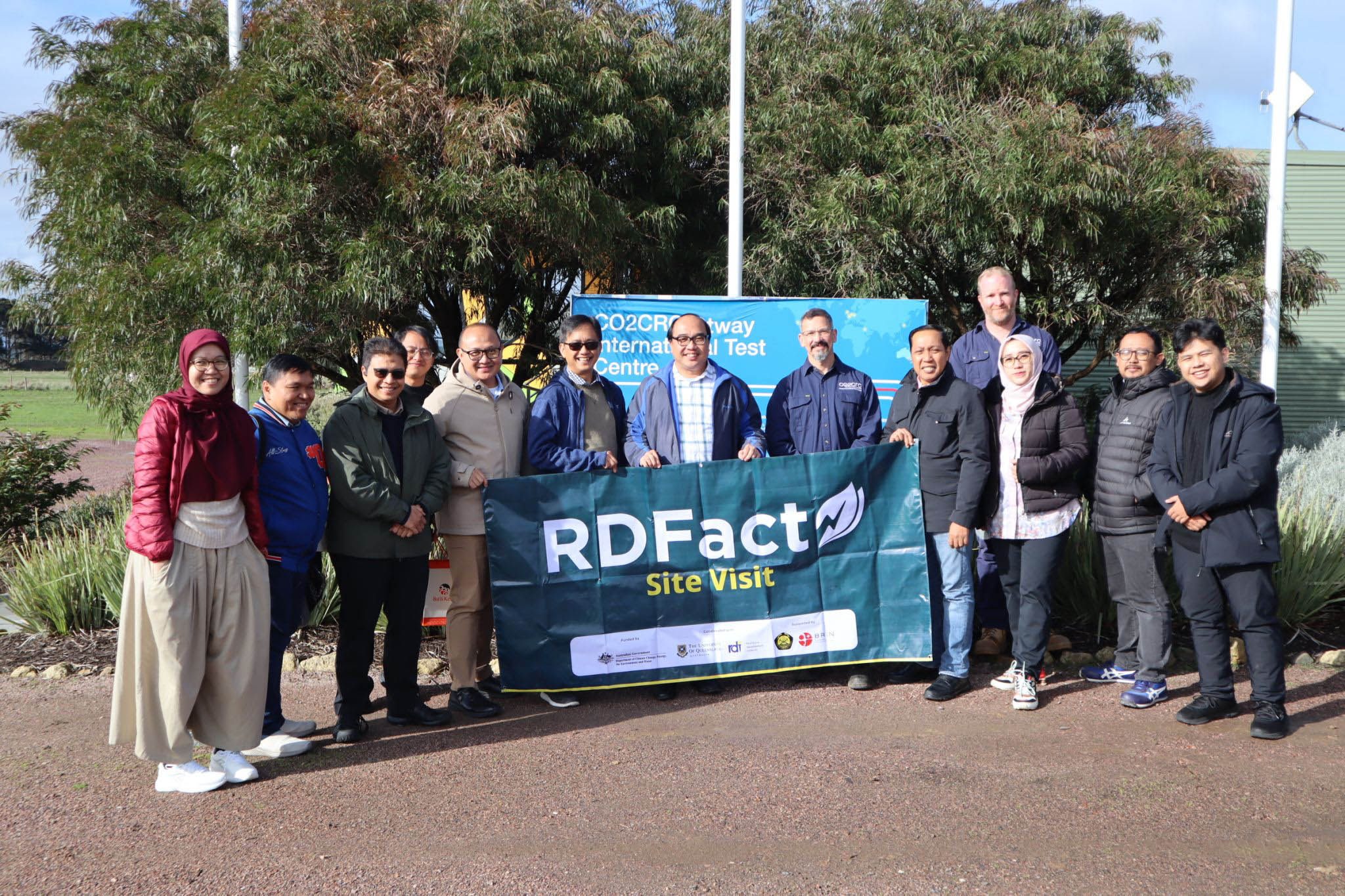
Fostering regional collaboration: CO2CRC’s Paul Barraclough and Mitch Allison with delegates from Indonesia’s Resilience Development Initiative (RDI) at the OITC.
2026 Symposium website is live
As the world races to build clean energy systems, the hard realities of energy supply cannot be ignored. While renewables are accelerating, hydrocarbons remain essential, widespread, and continue to grow in use—driven by the energy demands of expanding, and developing, economies and populations.
Carbon capture and storage (CCS) technologies provide one of the few viable pathways to reduce emissions while preserving energy security and affordability. Yet a widening investment gap threatens to slow progress, with current CCS funding falling well short of what’s needed to keep net-zero ambitions on track. Australia is a key player in closing that gap.
The role of CCS in confronting energy realities
Join us at the CO2CRC CCS Symposium 2026 to explore how technical, economic, policy, and political forces are shaping Australia’s contribution to CCS innovation—both at home and on the world stage.
This three-day event will bring together:
- 200+ delegates 50+ guest speakers
- World class international and local speakers from industry, academia, and government
- Premium networking with the industry’s most experienced veterans and emerging talent
- Policy updates from senior government speakers
- Welcome drinks and gala awards dinner
- Award winning RACV venue
We’ll present the latest findings from the Otway International Test Centre, dive into project updates across sectors, and host critical conversations on how to accelerate CCS investment and deployment.
Don’t miss your opportunity to connect, collaborate, and confront the energy realities ahead. Super Early Bird Registration is now available.
CO2CRC Training and Education
At CO2CRC, we believe that effective CCUS education and training is a vital element in shaping a sustainable, low-emission future. As such, we are dedicated to equipping a wide array of stakeholders, including industry experts, policymakers, investors, scientists, and the general public, with the knowledge and tools necessary to achieve their emission reduction targets. CO2CRC provides a range of general CCUS educational courses as well as technology specific and tailored CCUS training. Upcoming courses over the next few months include CCS Fundamentals. Contact Max Watson for more information.

CCS Fundamentals Course
Melbourne
8 October 2025, 8.30am – 5.00pm (online)
This 1-day course covers the fundamentals of capture and geological storage of CO2. Fossil fuel-based energy generation, production and separation of CO2-rich natural gas, as well as cement, ammonia, iron and steel production are major source of anthropogenic CO2 emissions into the atmosphere. Carbon Capture Utilisation and Storage, or CCUS, involves the long-term storage of captured CO2 emissions in subsurface geologic formations.
This course, led by CO2CRC’s technical experts, leveraging experiences from past industry background and the CO2CRC Otway International Test Centre’s CO2 storage operations, covers all aspects of the CCUS chain, including effective CO2 capture, transport, storage and monitoring. It explores the challenges of the current technology of geological storage, monitoring and verification including examples from working projects around the world.
It reviews technologies adapted from the petroleum industry, as well as new approaches critical to CCUS. As successful CCUS deployment also require risk management, economic drivers, appropriate regulation, clarity on liability issues and community acceptance, these aspects of CCUS and the corresponding opportunities for appropriately skilled organisations and individuals are also discussed.
“On behalf of Cooper Energy, I commend CO2CRC for their excellent CCUS course. It provided a comprehensive overview of the opportunities, complexities and challenges across all aspects the carbon capture, utilisation and storage sectors.” – James Clarke, Cooper Energy.
Limit of 20 places available. Secure your spot today:
Contact Max Watson or read for more information.
Follow CO2CRC today on LINKEDIN to keep up to date with the latest news on our ground-breaking demonstration and research projects.
Energy Transition News
5/08/2025 Northern Lights CCS project achieves first CO2 injection, storage milestone – World Oil. The first CO2 was successfully transported by vessel from Heidelberg Materials’ cement factory to Northern Lights’ facilities, then injected 2,600 m below the seabed.
20/08/2025 Barrow-Dampier CCS regional study – Geoscience Australia. The Barrow and Dampier sub-basins have been identified as a future hub for CCS.
22/08/2025 Legal challenge launched against HyNet CCS gas pipeline project in North West – New Civil Engineer. A legal challenge has been launched against plans to repurpose North Sea gas infrastructure to carry and store CO2.
22/08/2025 Macrocycles for carbon capture in humid conditions – Nature. Macrocyclic aromatic systems have been shown to selectively take up CO2 in the presence of water.
22/08/2025 UH Unveils Dual Breakthroughs In Carbon Capture Technology – Carbon Herald. Two breakthroughs could significantly cut the cost of capturing CO2 emissions from power plants.
21/08/2025 CCS: Thailand’s Bold Step Towards Net Zero Emissions – The Nation. A CCS Hub being developed by Thai company PTT is aiming to store up to 10 million tonnes of CO2 in Rayong and Chonburi.
21/08/2025 PLN, ITB team up on CCS study for North Sumatra coal plants to cut emissions – Tanahair. PT PLN Indonesia Power initiated a collaboration with the Bandung Institute of Technology to study the use of CCS technology at the Pangkalan Susu Steam Power Plant in North Sumatra.
17/08/2025 Australia needs to cough up its ‘regulatory hairballs’, declares PC boss – The Age. Economy-wide carbon price remains the cheapest and most effective way to reduce the nation’s greenhouse emissions.
17/07/2025 Chevron learns from true cost of carbon capture at Gorgon plant – The Australian. Chevron remains a believer in CCS despite a slow global take-up due to costs and a lag in market development.
15/08/2025 Saipem Begins Construction On Tangguh UCC Project – Carbon Herald. Saipem has commenced construction for BP Indonesia’s Tangguh UCC development. The project will use CCUS and CO2 to enhance gas recovery.
14/08/2025 Alternative Carbon Carrier Technology Could Improve Oil Production — and Carbon Storage Too – Texas Geosciences. A new method for enhanced oil recovery is showing promising results in modelling studies.
13/08/2025 Mission Zero Technologies Debuts Internationally By Launching A DAC Unit At Deep Sky Alpha – Carbon Herald. UK company Mission Zero Technologies has launched a direct air capture unit at the Deep Sky Alpha facility in Alberta, Canada.
11/08/2025 Large-scale CCUS site established in North China – China Daily. The CCUS project of the Bayan Oilfield, located in Bayannur in North China’s Inner Mongolia autonomous region, has injected over 70,000 tonnes of CO2 into oil reservoirs.
11/08/2025 Heavy industry giants join forces on plan for carbon capture hubs across Asia – The Chemical Engineer. Plans are taking shape for CCUS hubs across Asia, as heavy industry firms join forces in a study that could see captured carbon shipped to Australia for burial.
07/08/2025 Germany Passes Fast-Track Bill To Build Out CO2 Storage Infrastructure – Carbon Herald. Germany ’s federal cabinet has approved legislation to speed up the development of CCS infrastructure.
05/08/2025 Two more projects look to join UK’s HyNet carbon capture cluster – Gasworld. Two new carbon capture projects have entered negotiations to join the UK’s HyNet cluster, marking a potential expansion of the project’s Track-1 CCS network.
05/08/2025 ADM Nears Restart Of Carbon Storage Site After Leak Paused Operations – Carbon Herald. Archer-Daniels-Midland is preparing to resume CO2 injections at its Decatur carbon storage site later this summer, following a 10-month pause triggered by a leak that raised safety concerns.
04/08/2025 CSIRO’s In-Situ Lab advances Australia’s CCS ambitions– Energy News Bulletin. A site in Western Australia’s south west is attracting the attention of scientists, policymakers and global energy majors alike.
01/08/2025 Santos applauds growing recognition of carbon capture and storage potential – Santos. Santos welcomes a new LETA and EY report detailing the potential of CCS as an exciting new industry for Australia.
Subscribe
Know a friend or colleague who would be interested in CO2CRC’s Insights Newsletter?
Tell them to subscribe below
